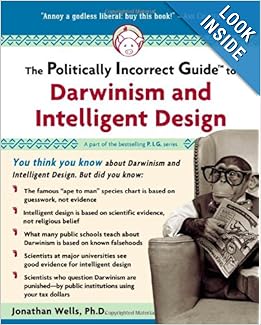Hadn’t hear that one till now. Further to “The Big Bang: How did one of the best attested theories in science become so unpopular?”, a friend reminds me of another classic instance of Bang-o-phobia, found in Jonathan Wells’s Politically Incorrect Guide to Darwinism and Intelligent
Design, pp. 137–38:
In 1938, German physicist Carl F. von Weizsächer gave a talk in which he referred to the relatively new idea of the Big Bang. Renowned physical chemist Walther Nernst, who was in the audience, became very angry. Weizsächer later wrote:
“He said, the view that there might be an age of the universe was not science. At first I did not understand him. He explained that the infinite duration of time was a basic element of all scientific thought, and to deny this would mean to betray the very foundations of science. I was quite surprised by this idea and I ventured the objection that it was scientific to form hypotheses according to the hints given by experience, and that the idea of an age of the universe was such a hypothesis. He retorted that we could not form a scientific hypothesis which contradicted the very foundations of science.”
Weizsächer concluded that Nernst’s reaction revealed “a deeply irrational” conviction that “the world had taken the place of God, and it was blasphemy to deny it God’s attributes.” (Carl F. von Weizsächer, The Relevance of Science (1964), pp. 151-153.)
Of one thing we can be sure. The Big Bang theory was entering the world of big, high science as one really unloved puppy.
